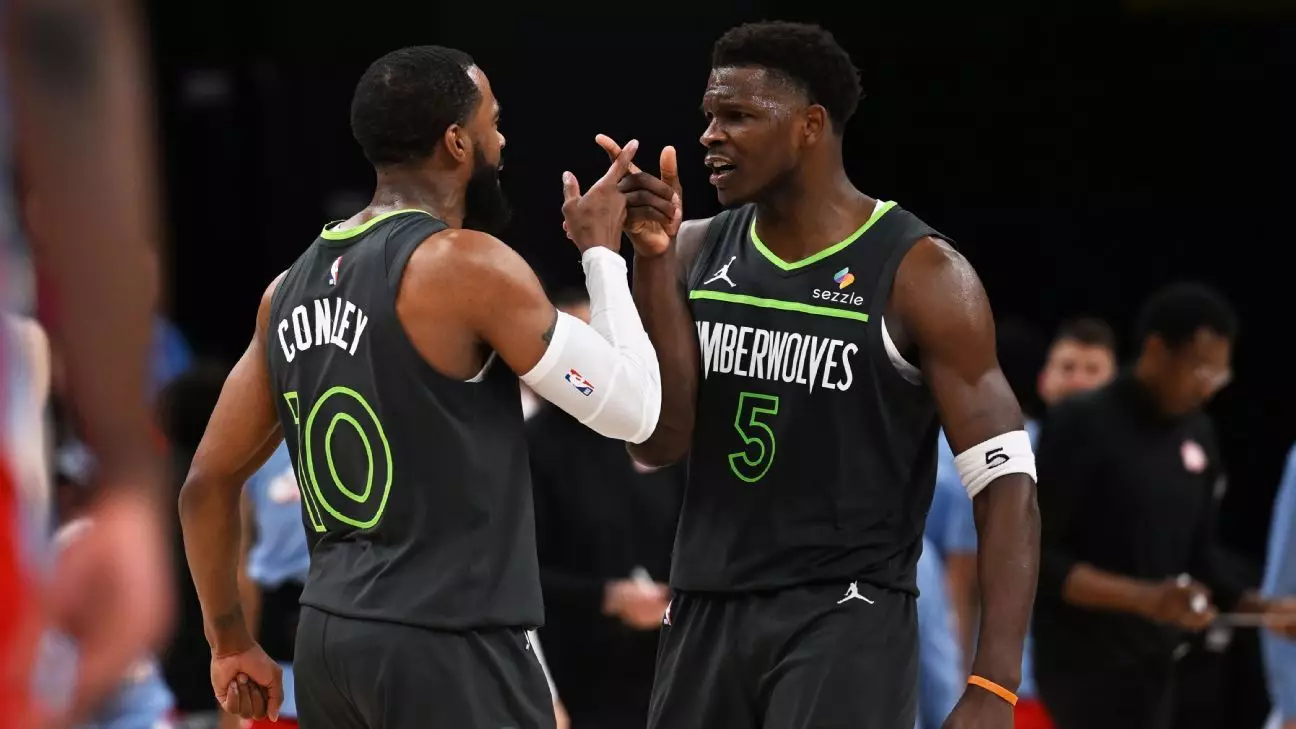In a turn of events that many basketball fans welcomed with open arms, the Minnesota Timberwolves received fantastic news just in time for their final regular-season game. After a controversial technical foul was issued to their rising star, Anthony Edwards, during a previous matchup against the Brooklyn Nets, the NBA decided to rescind this infraction. This decision arrives at a critical juncture—not just for Edwards but for the entire team, as their playoff prospects hang in the balance. Under normal circumstances, an 18th technical foul in a season would have been a glaring albatross, leading to an automatic suspension. Fortunately for the Timberwolves, the league exhibited a flicker of common sense, allowing Edwards to play.
The Weight of Technical Fouls in the NBA
Technical fouls are far more than just a footnote in a player’s record; they carry significant implications for the player and their team. Under the NBA’s regulations, amassing 16 technical fouls results in a one-game suspension—a rule designed to promote discipline among players. For many teams, a fine line exists between passion for the game and detrimental behavior. One could argue that while players have an undeniable right to express frustration, they also bear the burden of responsibility. Edwards’ technical foul stemmed from a heated moment during competition; he felt unjustly penalized while guarding Brooklyn’s Keon Johnson. His reaction, although impulsive and laced with profanity, exemplifies the emotional stakes that players experience on the court.
Nonetheless, the repercussions of such actions are stark. Technical fouls can become a double-edged sword, jeopardizing a player’s availability during pivotal moments of the season. In this case, the NBA’s decision to review the situation and ultimately rescind the technical foul caused many to reflect on the inherent subjectivity of the officiating process. While it is crucial to maintain order in the game, assessing whether a reaction merits a technical foul requires a discerning eye and a dash of empathy.
The Stakes of Playoff Positioning
As the Timberwolves prepared to face the Utah Jazz, the stakes could not have been higher. With the current season ending and playoff positioning on the line, every game transformed into a gladiatorial battle. The Timberwolves currently boast a record of 48-33 and have the potential to ascend as high as fourth in the Western Conference. A higher seed could provide home-court advantage during the playoffs, invaluable in maximizing their chances of success. Conversely, a slip to eighth place would require the team to engage in a perilous play-in game, arguably a gamble no team wants to undertake.
In a world brimming with uncertainties, the Timberwolves managed to navigate one significant hurdle in avoiding suspension for Edwards, but that doesn’t erase the fundamental question: how do you balance excitement and discipline on the court? The answer is intricately tied to personal expression and accountability, a complex equation that varies from player to player. Edwards’ plea to reconsider his technical foul resonates deeply as it showcases the fine line between passion and consequence in the heat of competition.
Inside the Mindset of an Athlete
The dynamic world of athletics is often characterized by high emotions, rapid decisions, and the pressurized environment of the court. Athletes consistently toe the line between maintaining their composure and expressing their frustrations. Edwards’ expression of disbelief and frustration upon receiving the foul reflects a broader sentiment shared by many athletes—something that should be recognized rather than penalized. Coach Chris Finch echoed these thoughts, admitting that the reason behind assessing the technical foul was obscure and lacked clarity.
This raises essential questions regarding player relations with officials. While every player understands that referees wield the authority to enforce the rules, the degree of subjective interpretation can cast a shadow over the game. Edwards himself acknowledged that he has a “good relationship” with referee Ray Acosta, suggesting that mutual respect can often mitigate misunderstandings. However, how often do we see players punished for similar outbursts? This inconsistency can foster resentment not just among players but also among fans and coaches alike. The Timberwolves have a shining opportunity in this upcoming playoff run to redefine their legacy, but they must also engage in conversations around the accountability of both players and officials alike.
In a league characterized by intense drama, high expectations, and fierce rivalries, the Timberwolves are still pushing the envelope. The resolution of Edwards’ technical foul dilemma may serve as a case study in the ages to come, revealing not just the ups and downs of a season, but the broader dialogue about what constitutes fairness in sports.

